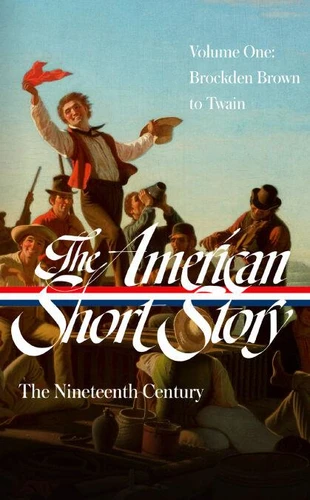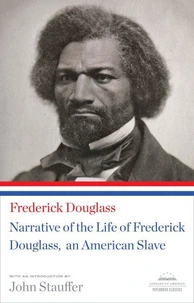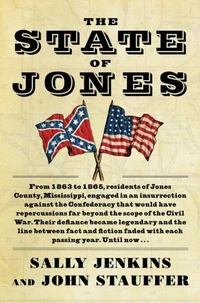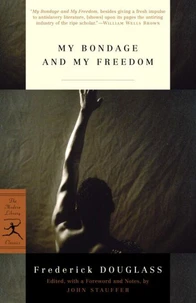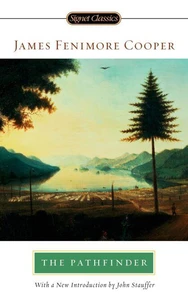The American Short Story: The Nineteenth Century, Volume 1 (LOA #394)
Par :Formats :
Actuellement indisponible
Cet article est actuellement indisponible, il ne peut pas être commandé sur notre site pour le moment. Nous vous invitons à vous inscrire à l'alerte disponibilité, vous recevrez un e-mail dès que cet ouvrage sera à nouveau disponible.
Disponible dans votre compte client Decitre ou Furet du Nord dès validation de votre commande. Le format ePub protégé est :
- Compatible avec une lecture sur My Vivlio (smartphone, tablette, ordinateur)
- Compatible avec une lecture sur liseuses Vivlio
- Pour les liseuses autres que Vivlio, vous devez utiliser le logiciel Adobe Digital Edition. Non compatible avec la lecture sur les liseuses Kindle, Remarkable et Sony
- Non compatible avec un achat hors France métropolitaine
 , qui est-ce ?
, qui est-ce ?Notre partenaire de plateforme de lecture numérique où vous retrouverez l'ensemble de vos ebooks gratuitement
Pour en savoir plus sur nos ebooks, consultez notre aide en ligne ici
- Nombre de pages832
- FormatePub
- ISBN978-1-59853-821-2
- EAN9781598538212
- Date de parution20/01/2026
- Protection num.Adobe DRM
- Infos supplémentairesepub
- ÉditeurLibrary of America
Résumé
The first volume in a landmark story collection that redefines what we thought we knew about the great American literary form A diverse, unprecedented gathering of more than one hundred stories, representing work by fifty different writersAs much a nineteenth-century American invention as the cotton gin and the steamboat, the short story emerged here with a range of innovation and a variety of styles and subjects that has still not been fully appreciated.
Diverse, wide-ranging, and unprecedented in its scope, The American Short Story: The Nineteenth Century gathers more than one hundred stories by fifty different writers. This first volume of Library of America's two-volume collection of nineteenth-century American short fiction tracks the development of the American short story from Charles Brockden Brown's fragments and Washington Irving's sketches to Poe's gothic tales of horror to Mark Twain's humorous stories.
Represented here by generous selections are all the major figures-Irving, Poe, Hawthorne, Melville, and Twain-as well as Rose Terry Cooke, also a major writer, restored to a place of prominence in this anthology with three unforgettable masterpieces. Among the many unexpected writers in this volume are: William Austin, so crucial to the development of Hawthorne and Poe; the antebellum Black writer and physician James McCune Smith, whose sketches in his "Heads of the Colored People" series lampooned the pseudoscientific racism of phrenology ; Lucretia Hale, the author of the feminist fantasy "The Queen of the Red Chessman, " perhaps the greatest one-hit wonder of the mid-nineteenth century; Francis Parkman, whose early magazine fiction remains unknown today even to many scholars; and Fitz-James O'Brien, the author of such unnerving horror stories as "The Lost Room" and "What Was It?, " whose true themes and concerns twenty-first century readers, accustomed to reading gay fiction, will not miss. Unrivaled in its range and textual authority, the anthology includes biographies of each writer, a chronology of writers and the American short story from 1800 to 1900, and extensive notes.
Diverse, wide-ranging, and unprecedented in its scope, The American Short Story: The Nineteenth Century gathers more than one hundred stories by fifty different writers. This first volume of Library of America's two-volume collection of nineteenth-century American short fiction tracks the development of the American short story from Charles Brockden Brown's fragments and Washington Irving's sketches to Poe's gothic tales of horror to Mark Twain's humorous stories.
Represented here by generous selections are all the major figures-Irving, Poe, Hawthorne, Melville, and Twain-as well as Rose Terry Cooke, also a major writer, restored to a place of prominence in this anthology with three unforgettable masterpieces. Among the many unexpected writers in this volume are: William Austin, so crucial to the development of Hawthorne and Poe; the antebellum Black writer and physician James McCune Smith, whose sketches in his "Heads of the Colored People" series lampooned the pseudoscientific racism of phrenology ; Lucretia Hale, the author of the feminist fantasy "The Queen of the Red Chessman, " perhaps the greatest one-hit wonder of the mid-nineteenth century; Francis Parkman, whose early magazine fiction remains unknown today even to many scholars; and Fitz-James O'Brien, the author of such unnerving horror stories as "The Lost Room" and "What Was It?, " whose true themes and concerns twenty-first century readers, accustomed to reading gay fiction, will not miss. Unrivaled in its range and textual authority, the anthology includes biographies of each writer, a chronology of writers and the American short story from 1800 to 1900, and extensive notes.
The first volume in a landmark story collection that redefines what we thought we knew about the great American literary form A diverse, unprecedented gathering of more than one hundred stories, representing work by fifty different writersAs much a nineteenth-century American invention as the cotton gin and the steamboat, the short story emerged here with a range of innovation and a variety of styles and subjects that has still not been fully appreciated.
Diverse, wide-ranging, and unprecedented in its scope, The American Short Story: The Nineteenth Century gathers more than one hundred stories by fifty different writers. This first volume of Library of America's two-volume collection of nineteenth-century American short fiction tracks the development of the American short story from Charles Brockden Brown's fragments and Washington Irving's sketches to Poe's gothic tales of horror to Mark Twain's humorous stories.
Represented here by generous selections are all the major figures-Irving, Poe, Hawthorne, Melville, and Twain-as well as Rose Terry Cooke, also a major writer, restored to a place of prominence in this anthology with three unforgettable masterpieces. Among the many unexpected writers in this volume are: William Austin, so crucial to the development of Hawthorne and Poe; the antebellum Black writer and physician James McCune Smith, whose sketches in his "Heads of the Colored People" series lampooned the pseudoscientific racism of phrenology ; Lucretia Hale, the author of the feminist fantasy "The Queen of the Red Chessman, " perhaps the greatest one-hit wonder of the mid-nineteenth century; Francis Parkman, whose early magazine fiction remains unknown today even to many scholars; and Fitz-James O'Brien, the author of such unnerving horror stories as "The Lost Room" and "What Was It?, " whose true themes and concerns twenty-first century readers, accustomed to reading gay fiction, will not miss. Unrivaled in its range and textual authority, the anthology includes biographies of each writer, a chronology of writers and the American short story from 1800 to 1900, and extensive notes.
Diverse, wide-ranging, and unprecedented in its scope, The American Short Story: The Nineteenth Century gathers more than one hundred stories by fifty different writers. This first volume of Library of America's two-volume collection of nineteenth-century American short fiction tracks the development of the American short story from Charles Brockden Brown's fragments and Washington Irving's sketches to Poe's gothic tales of horror to Mark Twain's humorous stories.
Represented here by generous selections are all the major figures-Irving, Poe, Hawthorne, Melville, and Twain-as well as Rose Terry Cooke, also a major writer, restored to a place of prominence in this anthology with three unforgettable masterpieces. Among the many unexpected writers in this volume are: William Austin, so crucial to the development of Hawthorne and Poe; the antebellum Black writer and physician James McCune Smith, whose sketches in his "Heads of the Colored People" series lampooned the pseudoscientific racism of phrenology ; Lucretia Hale, the author of the feminist fantasy "The Queen of the Red Chessman, " perhaps the greatest one-hit wonder of the mid-nineteenth century; Francis Parkman, whose early magazine fiction remains unknown today even to many scholars; and Fitz-James O'Brien, the author of such unnerving horror stories as "The Lost Room" and "What Was It?, " whose true themes and concerns twenty-first century readers, accustomed to reading gay fiction, will not miss. Unrivaled in its range and textual authority, the anthology includes biographies of each writer, a chronology of writers and the American short story from 1800 to 1900, and extensive notes.

